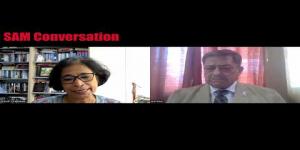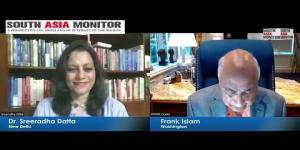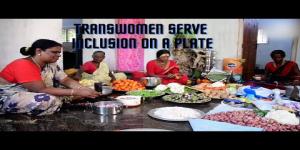Sexist remarks, harassment common for women in Nepal's politics
Despite the increased participation of women in politics over the past two decades in Nepal, they still face sexist remarks, harassment, and character assassinations

Despite the increased participation of women in politics over the past two decades in Nepal, they still face sexist remarks, harassment, and character assassinations. The fear of harassment and violence has made many women think twice before entering politics.
One of the recent examples of how women are treated is of February 28 when Raghuji Panta, leader of the Pushpa Kamal Dahal-Madhav Kumar Nepal faction of Nepal Communist Party, made a sexist comment against Komal Oli, a member of the National Assembly of Prime Minister K P Sharma Oli faction of the party. She is a well-known face of the Nepali music industry.
Panta had said: “The reason Oli has become a lawmaker and a Central Committee member is just because of singing the song ‘Poila Jana Pam’ (or ‘May I Get To Elope’) moving her saree up and showing her legs.”
His comments evoked sharp reactions from both Oli and other women activists. Following massive criticism, Panta had to apologise for his comments.
Speaking to The Kathmandu Post, Oli said: “Imagine where our society is heading when women are still targeted with such abusive attacks from a person who himself is a responsible leader of a political party. He was only endorsing a misogynistic attitude that prevails in Nepali society.
“People tend to think that the attack was only on Komal Oli, but remember this is an attack on all the women of the country and it will be repeated if the male-dominated society is not willing to accept that women can be leaders too.”
She further said, “if women are to be subjected to sexist remarks and sexual harassment, they will never come forward despite the government encouraging women representation by the reservation system because of the fear of abuse.
“After this incident, I got many phone calls from my family and friends blaming me because I chose to go into politics from a music background and became a victim of such abusive comments,” Oli was quoted by the newspaper.
“This gives a strong message on how any violence targeted towards women has the effect of discouraging them from coming forward and being a part of something great.”
Like Oli, there are others who faced similar experiences.
Sushila Pakhrin, who has three-decade-long experience in active politics, said she has learned a few things the hard way.
“My work experience has taught me that when people have nothing to criticise about women leaders, they resort to character assassination. Women leaders are on the receiving end of verbal abuse and harassment. Being politically active comes with a price because, in the end, it comes down to the character,” Pakhrin was quoted by The Kathmandu Post.
Even though the Nepali government has taken several steps to increase women’s representation in legislative bodies by providing 33 percent of the parliamentary seats to women, harassment and male domination still continue.
Pakhrin added that “giving women spaces just for the sake of constitutional provision but not doing anything to stop misogynistic behaviour towards them and excluding them from the decision-making process is shameful.”
The contribution of women can be noted in the 1990 People’s Movement when women from all walks of life actively participated in the movement to abolish the one-party Panchayat system and establish a multiparty democratic system.
In the same way, a large number of women participated in the 2006 People’s Movement, contributing to the abolition of the monarchy and the declaration of Nepal as the federal democratic republic.
It is noteworthy that the federal republican constitution of 2015 ensured women’s representation in the political structure.
In 2015, Nepal elected Bidya Devi Bhandari as its first woman president. In 2016, three of Nepal’s top positions - president, chief justice, and Speaker of the House - were held by women.
But the presence of women at top positions has not translated into similar successes for women in the political arena.
A survey by the National Democratic Institute, 2016, stated that violence against women in politics was a worldwide problem.
“Women have to look after two domains - a public domain and a private domain - which is a double burden for them,” Manushi Yami Bhattarai, a Central Committee member of the Janata Samajbadi Party, was quoted by the newspaper.
“As parliaments have been evolving constantly to make the country more equal and inclusive, women are still not heard. Most think that they have landed in positions just because of tokenism.”










Post a Comment